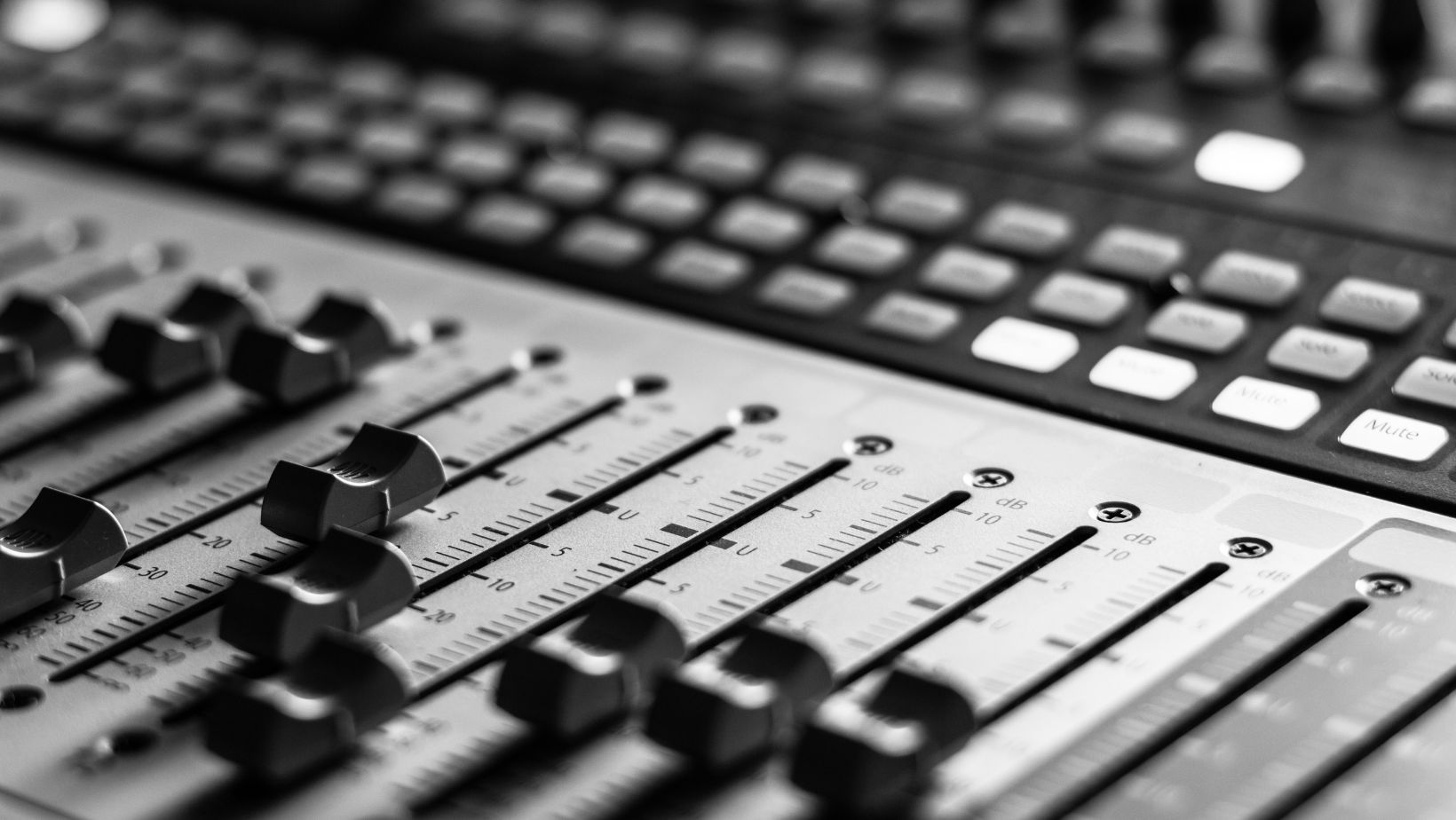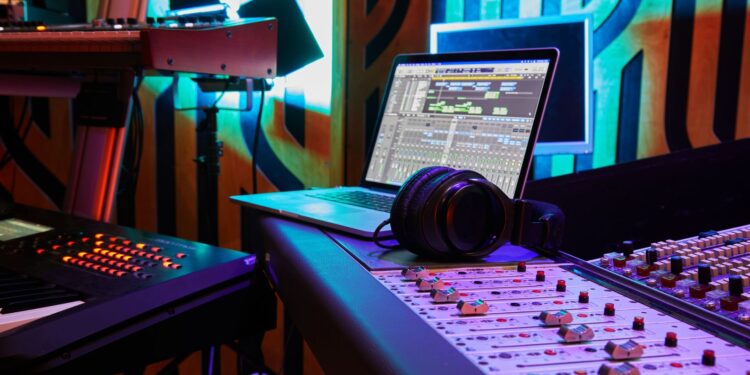Okay, let’s face it. The term “Artificial Intelligence” used to conjure up images of robots taking over the world, or maybe just awkwardly trying to fold laundry. But the reality is a lot less…dystopian and a lot more…musical. AI is here, it’s got a beat, and it’s rapidly changing the entire landscape of the music industry, from the way songs are written to how artists get paid. Forget the image of a soulless computer spitting out generic pop tunes. This isn’t about replacing artists; it’s about augmenting their creativity, streamlining processes, and opening up entirely new possibilities. Think of it as a super-powered, digital co-pilot for the music world. Ready to dive in? Let’s crank up the volume and explore how AI is shaking things up.
The Beat Goes On…and On…and On: AI In Songwriting And Composition
Remember when songwriting was solely the domain of talented humans hunched over pianos, scribbling lyrics on napkins? Well, that’s still a thing, thankfully. But AI is now a powerful tool that can assist and even participate in the creative process.
- The Idea Generator
Hit a wall? Writer’s block got you down? AI algorithms can analyze massive datasets of existing music – from chord progressions to lyrical themes to rhythmic patterns – and generate fresh ideas for melodies, harmonies, and even lyrics. Think of it as a brainstorming partner that never runs out of ideas (though, admittedly, some of those ideas might be a little…out there).
- The Co-Composer
Some AI tools can even collaborate with musicians in real-time. Imagine jamming with a virtual bandmate that can instantly adapt to your playing style and suggest complementary parts. This can be incredibly useful for solo artists or composers looking to experiment with new sounds and arrangements.
- The Personalized Sound Creator
Want to create a track that sounds like a specific artist or genre? AI can analyze the sonic characteristics of existing music and generate new material that captures that same vibe. This doesn’t mean ripping off other artists; it’s about using AI to understand the underlying elements that make a particular sound unique and then applying those elements to create something original.
Examples in Action:
- Amper Music
This platform allows users to create original music by specifying parameters like genre, tempo, key, and mood. Amper then generates a custom track based on these inputs, providing a royalty-free soundtrack for videos, games, or other projects.
- AIVA (Artificial Intelligence Virtual Artist)
AIVA specializes in composing emotional soundtracks for films, video games, and advertising. It’s even composed music for official Sony PlayStation video games.
- Endel
Endel creates personalized soundscapes based on your location, time of day, weather, and heart rate. These soundscapes are designed to improve focus, relaxation, and sleep, demonstrating the potential of AI to create functional and therapeutic music.
The Human Element: Why AI Will Never Replace Artists (Completely)
Despite all the hype surrounding AI, it’s important to remember that it’s ultimately a tool. It’s a powerful tool, but it’s still just a tool. AI can’t replace the creativity, emotion, and human connection that makes music so special. AI can generate ideas and assist with composition, but it can’t create something truly original without human input. Inspiration, innovation, and the ability to connect with listeners on an emotional level are still uniquely human qualities. And there’s nothing quite like seeing a band perform live.

The energy, the improvisation, the connection between the artists and the audience – these are all things that AI can’t replicate. Music is more than just notes and rhythms. It’s about storytelling, emotion, and human experience, be it a music for film or a game like Azurslot. AI can help with the technical aspects of music production, but it can’t replace the human touch that makes music so meaningful.
The Future Is Now: Embracing AI In The Music Industry
AI is no longer a futuristic fantasy; it’s a present-day reality that’s transforming the music industry in profound ways. From songwriting to royalties, AI is changing the way music is created, distributed, and consumed. While there are challenges to address, the potential benefits of AI are undeniable. By embracing AI as a tool and focusing on its ability to augment human creativity, the music industry can unlock new levels of innovation, efficiency, and accessibility. So, the next time you hear a song, remember that AI may have played a role in its creation. Whether it’s helping a musician overcome writer’s block, streamlining the mixing process, or connecting an artist with new fans, AI is shaping the sound of the future. And that future, my friends, sounds pretty darn interesting.




























































